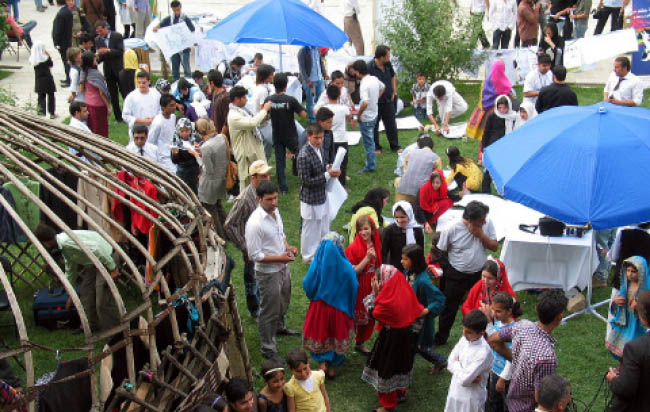Socialization refers to a set of views and attitudes acquired by members of a community from several ways. In the early nineteenth century, this paradigm was first introduced by Emile Durkheim in sociological literature and subsequently changed into a great point of view in the field of the analysis and interpretation of social conflicts. From this perspective, ethics and behavioral patterns of people in the community is considered a structural process that members of community will change with bringing positive alteration in the content of educational and training centers. According to Durkheim, ethical code and behavioral pattern of a society are the product of the culture ruling social relations and the fruit of institutions where members of a society are socialized. Hence, the more modern and efficient these institutions are the more fruitful its effect will be on the process of socialization.
Anthony Giddens, a British sociologist, nurtures similar view to Durkheim. According to him, “socialization is the process whereby the helpless infant gradually becomes self-aware, knowledgeable person, skilled in the ways of the culture into which she or he is born”. In brief, socialization is a process by which norms and other behavioral regulators are transformed into personality elements. He believes socialization is not simply a one-way process in which an individual learns how to fit into the society. He may also redefine his roles and obligations and as a result, he affects society. The individual and society both are dependent on each other for their existence. Thus, socialization can be described from two points of view, as individual learning and as a process of cultural transmission by the community as a whole.
The process of socialization is highly down in Afghanistan since educational and training centers could neither introduce a favorite behavioral pattern or ideal attitude nor pave the ground for a sound and healthy way of socialization. Afghanistan is a mosaic of various tribes, culture, and religion and its inhabitants hardly experienced tolerance and coexistence for lacking national emotion and process of socialization.
Afghanistan’s history reflects highly bitter and bloody episodes which stemmed from ethnic and religious discriminations and led to a dispersed and ill society, where poverty holds strong sway. Segregation, ethnic intolerance, linguistic and religious sensitivities and lack of national emotion prevail in the process of socialization as a paradigm which has shaped the character of the people in this land. Therefore, ethnic sub-cultures were considered mainstay and cultural superiority in this land. Virtually, this issue narrowed the opportunity for emerging national emotion and sensitivities. That is why Afghan nation could not gain an intra-national knowledge to be used as an axis for national gathering and smooth the path for tolerance and coexistence. In brief, the process of socialization in Afghanistan grows within tribal culture and custom and tribal emotion remains as a lifetime identity and restricts the possibility of coexistence.
The establishment of a political system based on pillar of development and welfare seems next to impossible in Afghanistan due to the insufficiency of collective wisdom and the stagnation of culture and thought. This issue hampered the process of modernization. This situation has further led to the recognition of ethnic segregation on the one hand, and the strength of the walls of culture and custom against the infiltration of modernism on the other hand. These walls are so strong that neither Islamic tenets nor Marxism, as a modern ideology, could collapse them to pave the ground for exercising modernism. Little wonder, many of the intellectual elites of the society, in spite of their modern education and contact with the intellectual products and outcome of contemporary schools of thought, are restricted within ethnic sensitivity.
The youths and teenagers, who are to be the future builder of this society, are most likely to be the main victims of this turbulence. Based on their age, they are in sensitive stage and disregarding them will hinder the process of social development. Afghan youths are the silent victims of the society and experienced war and violence rather than love and affection from the very beginning of their life. Similarly, rather than going to school, they proceeded to war and pulled the trigger of gun, forced to backbreaking labor, and took refuge with great exhaustion. No one, however, breathed a word regarding this tragedy or adopted a strategy to curb the issue. These individuals will be socialized in the state of war and amidst bloody battles, and horror and terror. But no source has pondered upon the ethical and behavioral effects of these individuals which might lead to a great tragedy.
Home » Opinion » Afghanistan and the Challenges of Socialization
Afghanistan and the Challenges of Socialization
| Hadi Miran

